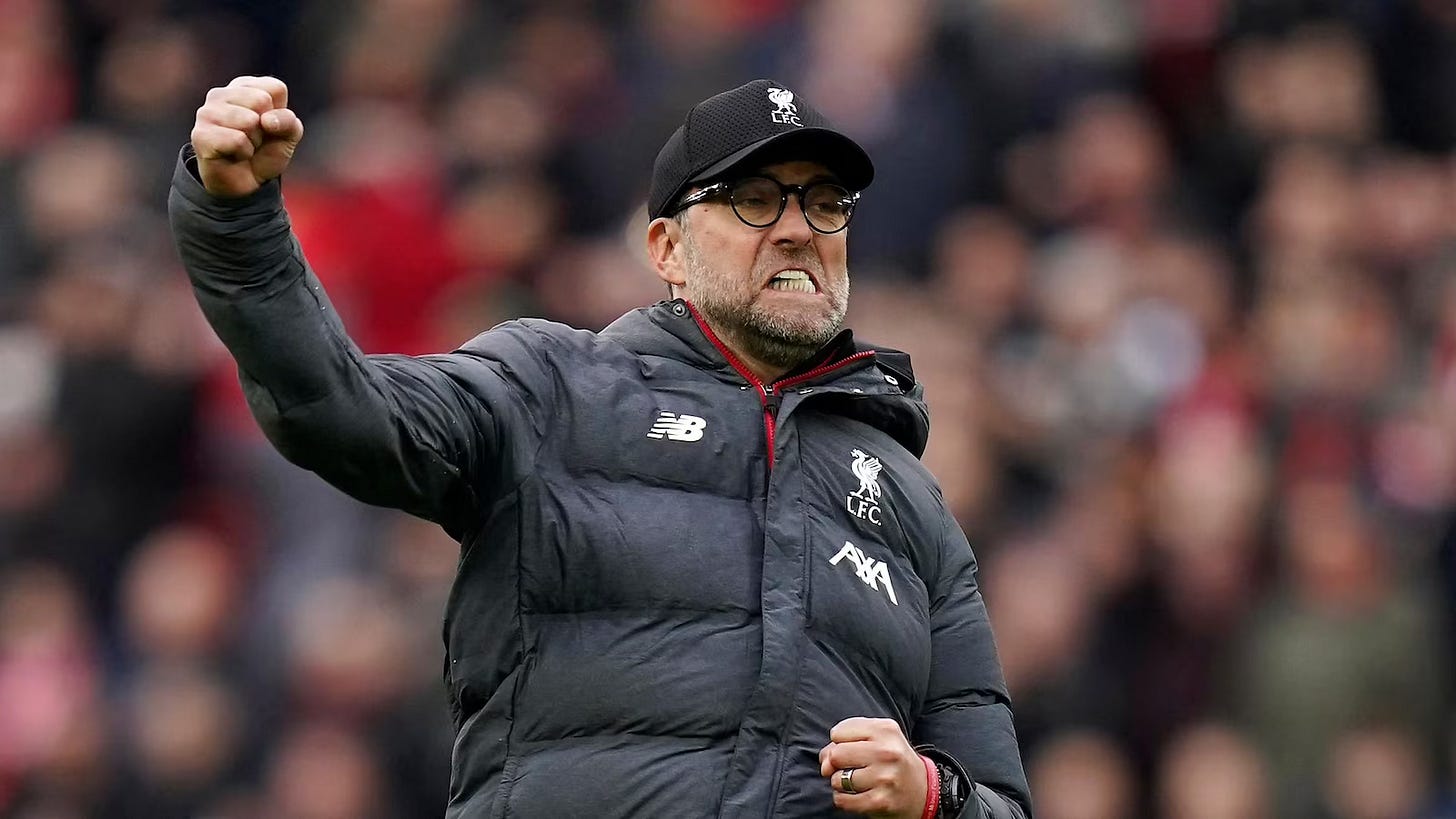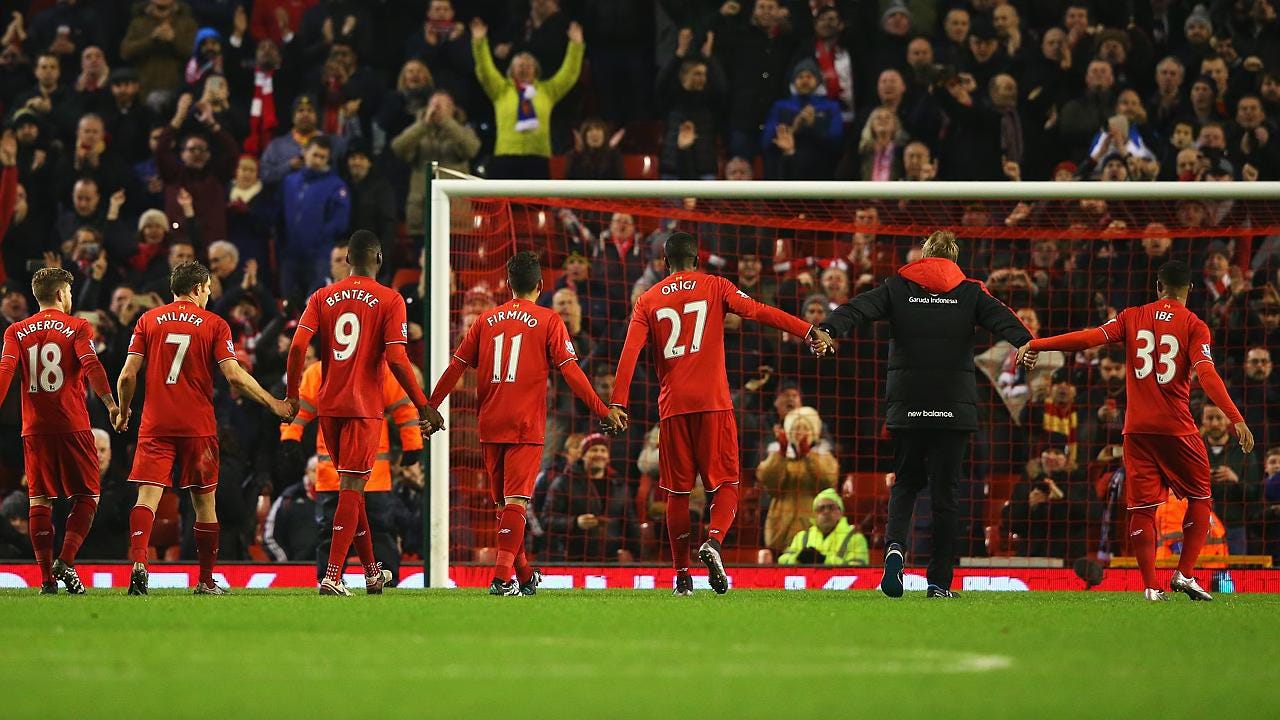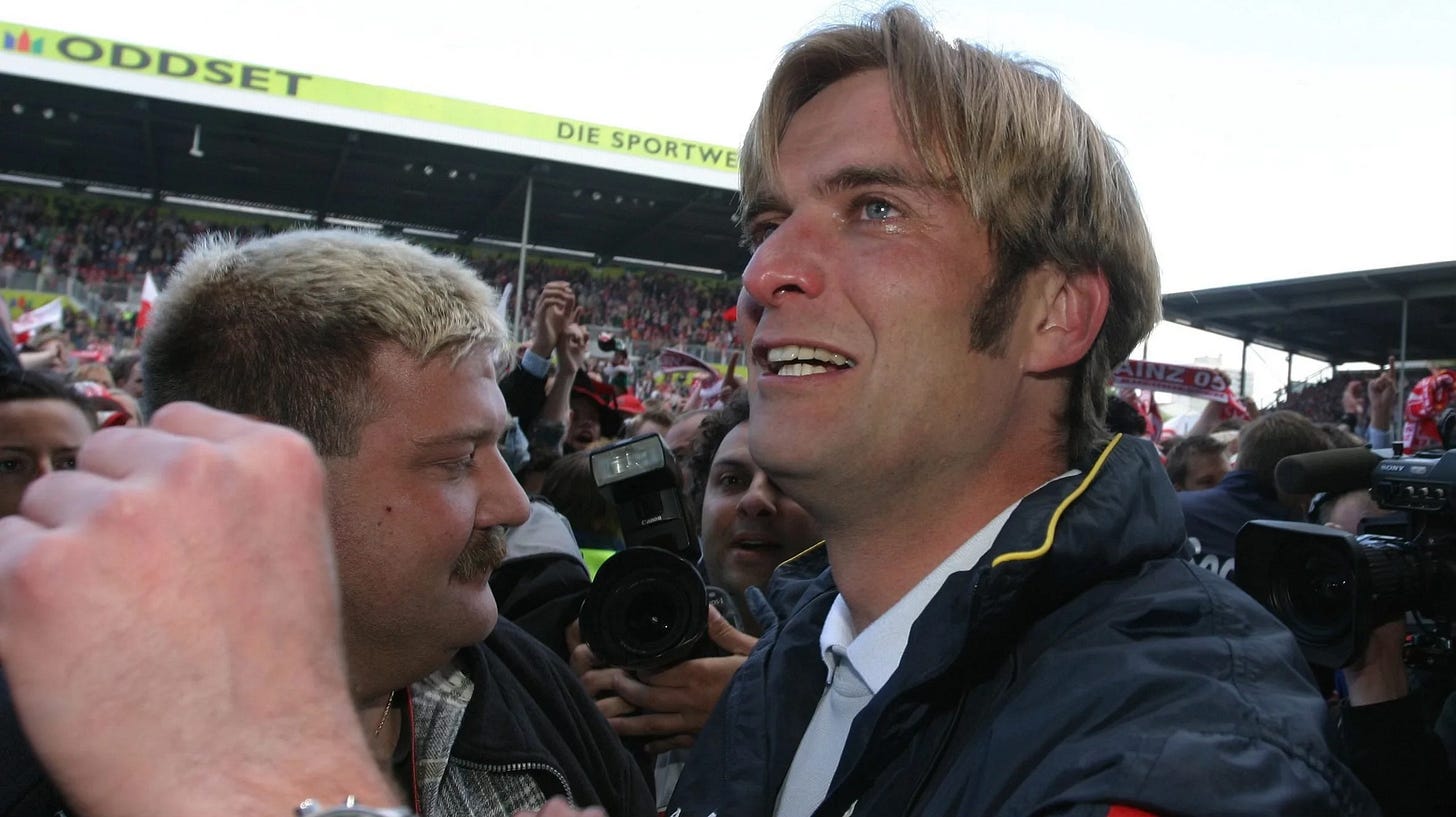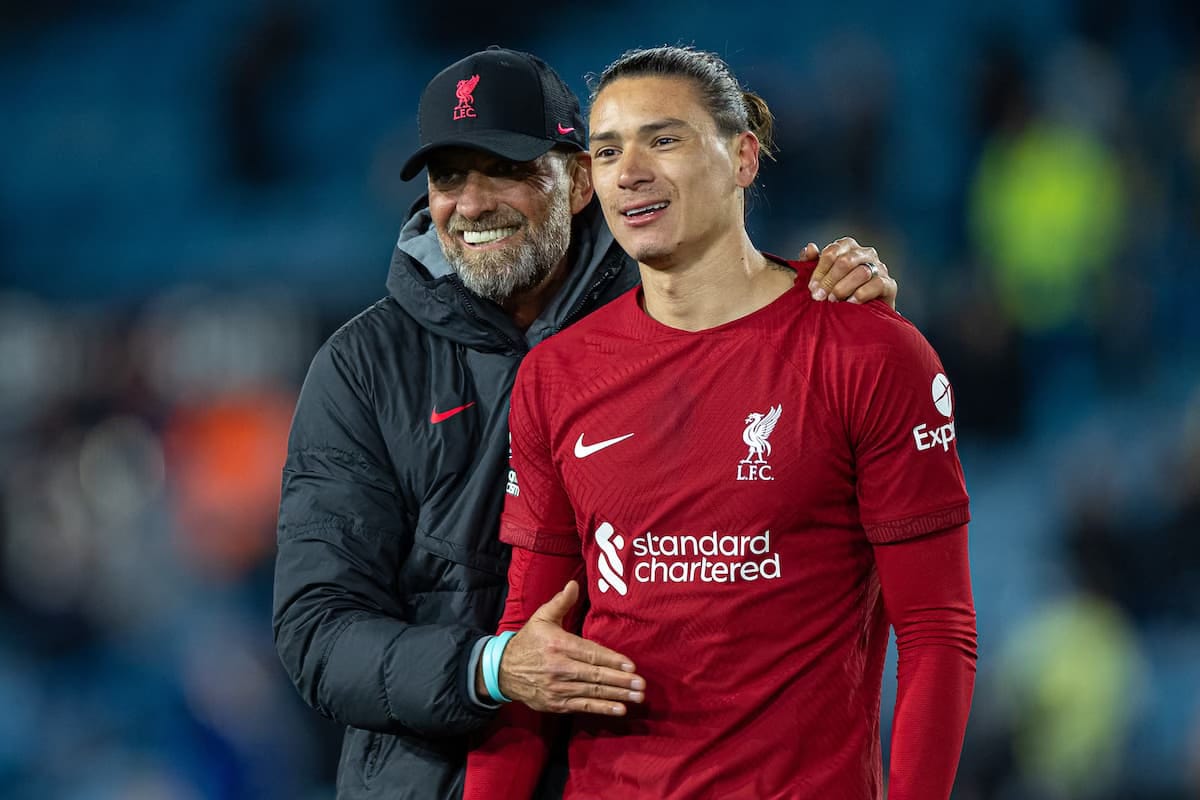Heavy Metal: The History of Jürgen Klopp (So Far)
The tactical evolution of one of the game's great managers, from relegation scraps at Mainz to Champions League glory at Anfield.
On a December night two months into his first season as manager, Jürgen Klopp’s Liverpool were behind 2-1 to West Brom.
Liverpool had controlled the game, but after Jordan Henderson scored early, West Brom responded with two set-piece goals. After the second, a Martin Olsson header, a familiar embarrassment began to fall over the home fans, the one a big club feels when losing to a small club.
But on that dreary evening, in the middle of a dreary season where Liverpool sat 10th in the table, Klopp saw an opportunity to show the fans what was to come.
Instead of letting his side fold up, Klopp began forcefully waving them on to press the opposition. They ran and tackled and attacked desperately, looking for the equalizer.
The passion the fans saw on the field got them on their feet. They began singing and cheering as Liverpool fought to get even. Klopp transformed from coach to conductor, urging the players on with one hand and the fans with the other. Anfield reached its crescendo in the 96th minute when Divock Origi took a shot from 30 yards away that nestled into the bottom right corner.
The full-time whistle blew, and Liverpool’s players, relieved to avoid the loss, began to make their way towards the tunnel. Klopp, however, wasn’t quite done with his work that evening. He gathered all his players and walked them, arm in arm, in front of the Kop, the stand holding Liverpool’s most faithful supporters.
The fans cheered the players, not for the result but for the performance; they could tell this was the beginning of something special. Jürgen Klopp was bringing an attitude back to Anfield.
Made in Mainz
Near the end of the 2001 season, Mainz 05 was in the second tier of German soccer and was staring down relegation to the third division.
The club sacked manager Eckhard Krautzun and searched for a new coach who could save them with eleven games to go. Mainz sporting director Christian Heidel believed the club’s best chance of survival was to return to the style of manager Wolfgang Frank, who preceded Krautzun. Heidel approached 33-year-old Jürgen Klopp, the club’s veteran fullback and a disciple of Frank’s system, and asked if he would consider taking the job. Klopp immediately retired from his playing career and held his first training session as Mainz’s manager the next day.
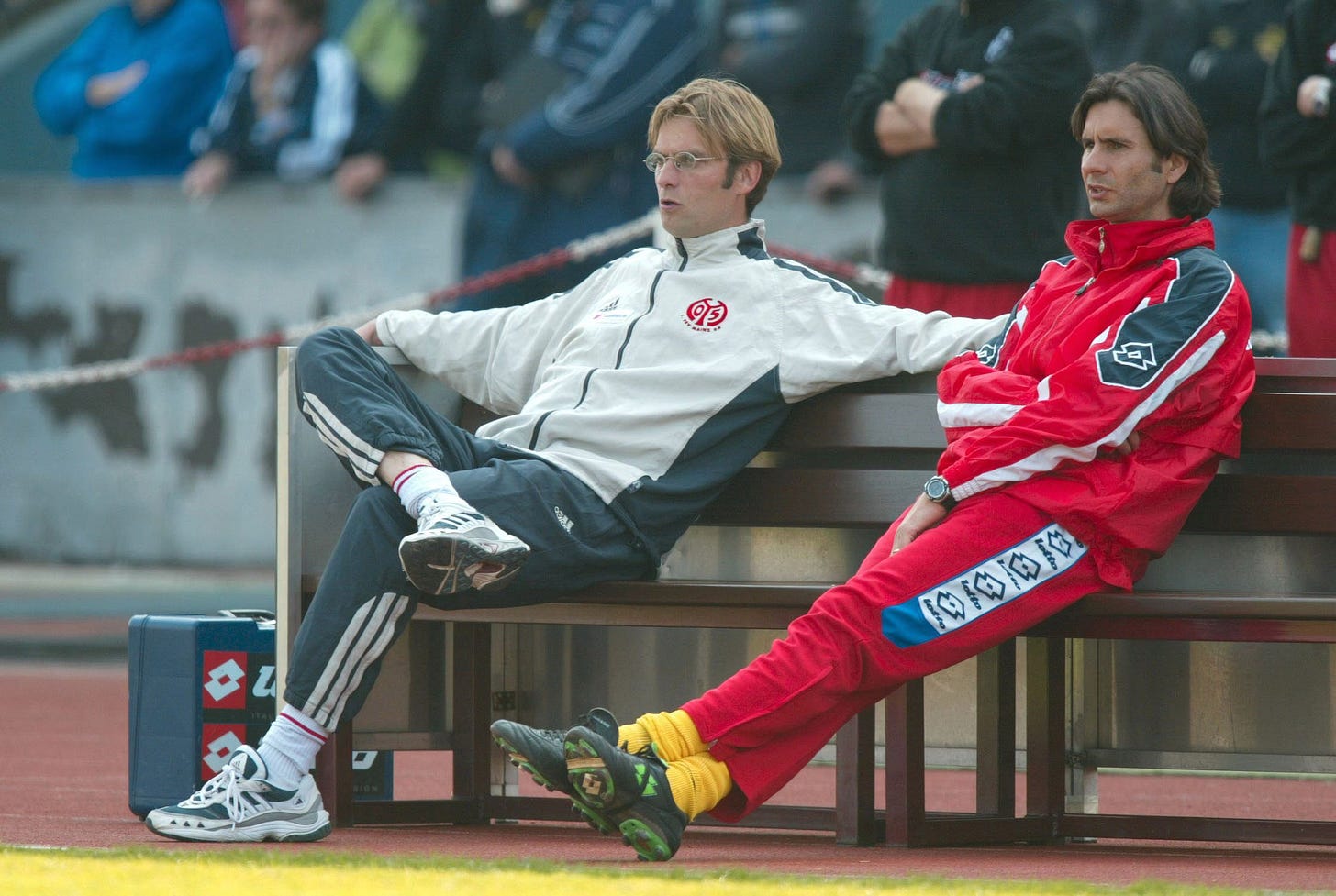
Klopp began reinstalling the central pillar of Frank’s tactics: the gegenpress. Gegenpress is a German word that translates to “counter press,” and describes a tactic where managers order their players to immediately press to win the ball back when they lose it high up the field. This quick press gives the opposition less time to transition and regroup, making it harder for them to retain possession.
Heidel saw the gegenpress as Mainz’s best chance of survival because it helped compensate for their most glaring issue: a lack of talent. Many of the most valuable players in soccer are the ones who create and score goals, and this was an area where Mainz were in short supply. The gegenpress changed this equation by using organization and discipline to win the ball high up the field and create easy chances, reducing the need for star attacking players. As Klopp would famously say, “Think about the passes you have to make to get a player in the number 10 role [attacking midfielders] into a position where he can play the genius pass; gegenpressing lets you win back the ball nearer to the goal. It’s only one pass away from a really good opportunity. No playmaker in the world can be as good as a good gegenpressing situation, and that’s why it’s so important.”
Klopp’s style, with the gegenpress as the foundation, became known as Heavy Metal Football. Its results at Mainz were immediate: they won six of their first seven games under Klopp and saved themselves from relegation.
Klopp expanded his Heavy Metal philosophy over the next two seasons and turned Mainz into a contender for promotion to the Bundesliga, Germany’s top division. The team became famous across the country for its hard-running style, swarming the opposition high up the field with ferocious pressing. In 2002 and 2003, Mainz came brutally close to promotion, finishing one spot short in both seasons.
After the second near miss in ‘03, a staff member recalls that Klopp was in tears, inconsolable. Hours later, he gathered 10,000 supporters in the town square and vowed they would win promotion, declaring, “We will prove that it is possible to get up after such pain.”
In the 2004 campaign, Klopp’s Mainz delivered on that promise and won promotion to the Bundesliga. Years later, Klopp would say, “My greatest success as a coach was promotion to the Bundesliga with Mainz. We had a small squad, strong opponents. What I did with Mainz cannot be topped.”
Klopp followed the 2004 success with two consecutive eleventh-place finishes in 2005 and 2006 - outstanding mid-table results considering Mainz had a payroll that was less than half the average Bundesliga club.
However, after years of Klopp’s Heavy Metal approach, the mileage began to show on the players. Amid injury and fatigue, the 2007 Mainz team started the season poorly and limped to relegation at the end of the season.
Klopp went down with them, vowing to stay put until they returned to the Bundesliga. However, his performance at Mainz had made Klopp one of Germany's hottest managerial candidates. In 2008, after Klopp failed to win promotion back to the Bundesliga with Mainz, he resigned to become manager of Borussia Dortmund. Despite leaving the squad back in the second division, Klopp departed Mainz as a hero, and a crowd of thousands gathered in the town square to see him off.
The Dortmund Days
Klopp faced a new challenge at Dortmund. The club had faced a relegation scare in the 2006-2007 season, and they finished 13th in the league in 2008. Despite recent results, Dortmund were one of Germany's proudest and most historic clubs, and they longed to return to the top of the Bundesliga.
The team Klopp inherited at Dortmund was full of exciting young talent, including Mats Hummels, İlkay Gündoğan, and Robert Lewandowski. At Mainz, Klopp employed the gegenpress to hide his team’s deficiencies. At Dortmund, Klopp wanted to use it to turn his side’s talent into dominance.
Tactically, Klopp transformed his Heavy Metal Football from a constant all-out attack to a more methodical aggression. Offensively, Klopp’s Dortmund teams dominated the ball and almost always held the lion's share of possession. Defensively, Dortmund used a more structured iteration of the gegenpress, forcing opposing teams into traps that Klopp’s side converted into deadly counterattacks.
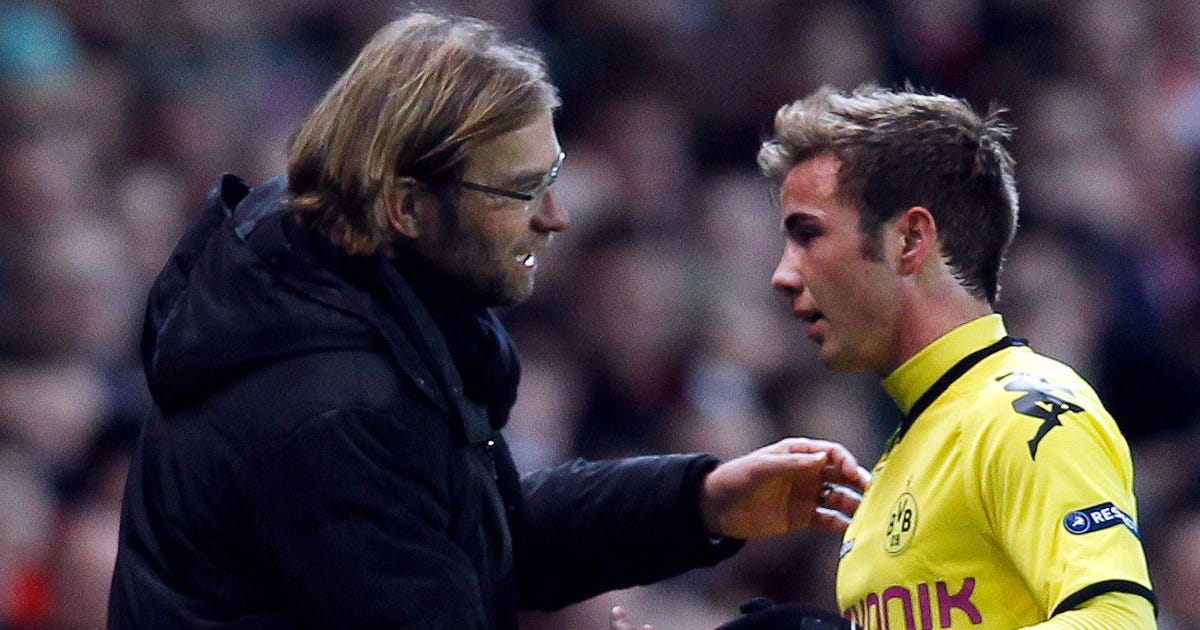
This refined system worked like a charm; Dortmund won the Bundesliga in 2011 and 2012, dominating traditional power Bayern Munich. Klopp’s new rendition of Heavy Metal Football moved from a strategy that saved a scrappy side from relegation to the framework of one of Europe’s best teams. In 2013, Klopp’s footballing philosophy was on the world stage as Dortmund made it to the Champions League final, the premier knockout tournament between Europe’s elite clubs.
But after their peak from 2011-2013, Klopp’s Dortmund suffered a steep regression, much like the end of Klopp’s tenure at Mainz. In the 2014-2015 season, Dortmund only earned 11 points from the first twelve games, going from one of Europe’s finest teams to fighting relegation.
What was to blame? First was a resurgent Bayern Munich. After being bullied by Dortmund in 2011 and 2012, Bayern began implementing some of Klopp’s pressing philosophy while also picking up some of Dortmund’s key players, like Mario Götze and Robert Lewandowski. Pep Guardiola, the manager who oversaw Barcelona’s Tiki-Taka teams of the late 2000s, joined Bayern in 2014 and immediately began deploying his quick-passing, possession-oriented style. Guardiola would win the Bundesliga in each of his three seasons at the club.
The other key element of Dortmund’s struggles were durability issues. In 2015, Dortmund faced what Klopp described as “the worst injury crisis in the history of football.” The gegenpress, while effective, demanded extreme mental and physical intensity from its players, and some in Germany began to connect the dots between Klopp’s Heavy Metal Football and the sharp declines in the teams that practiced it.
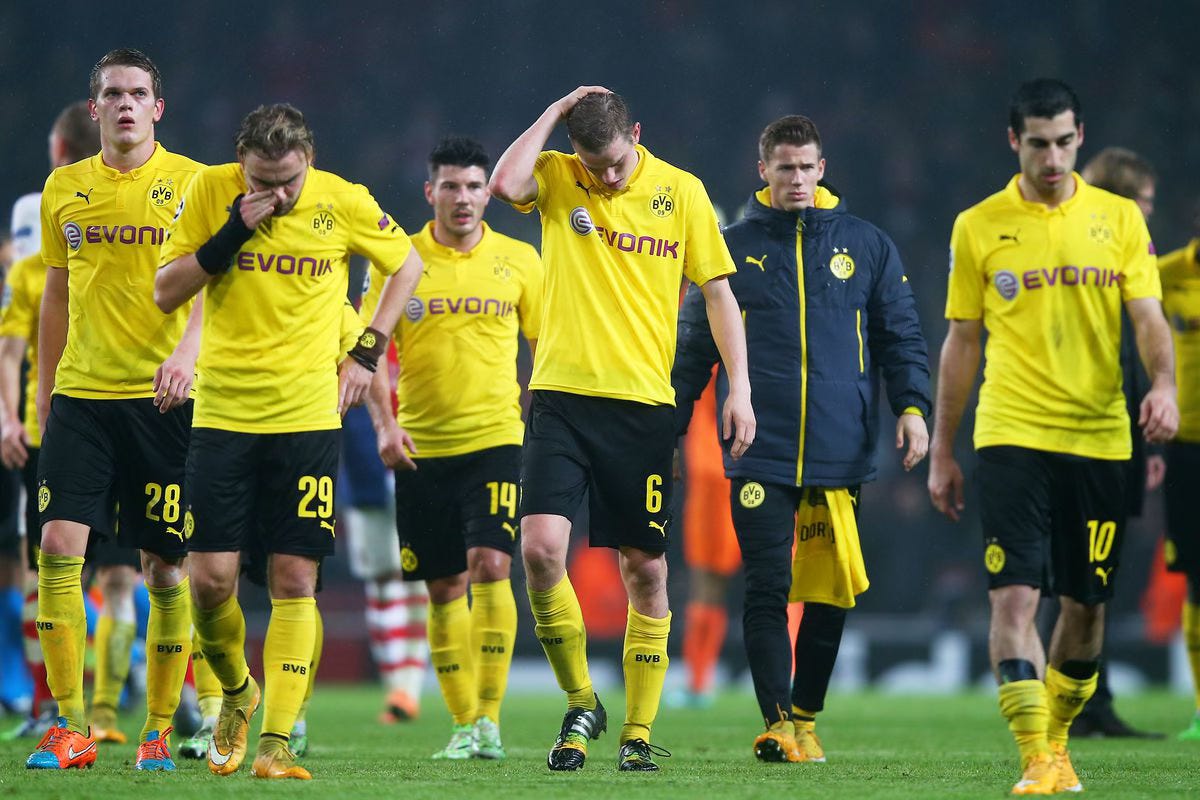
Klopp had begun to wear down, too, and he resigned from Dortmund at the end of the season. He indicated that he would take some time away from soccer, but was quickly lured out of his sabbatical by the job at Liverpool.
Leading Liverpool
The Liverpool that Jürgen Klopp found when he arrived in England was a far cry from the team that dominated Europe in the 70s and 80s. The club had last won the Premier League in 1990, and its only major trophy in recent years had been a miraculous 2005 Champions League title.
Despite fielding top players like Steven Gerrard, Luis Suárez, and Daniel Sturridge, Liverpool had lacked a strong identity in the modern era, and the results never fully materialized. Close misses with major trophies further darkened the cloud hanging over the club. The latest was the 2014 Premier League, where Liverpool led by five points with only three games to go before a costly slip (literally) saw Manchester City take the title.
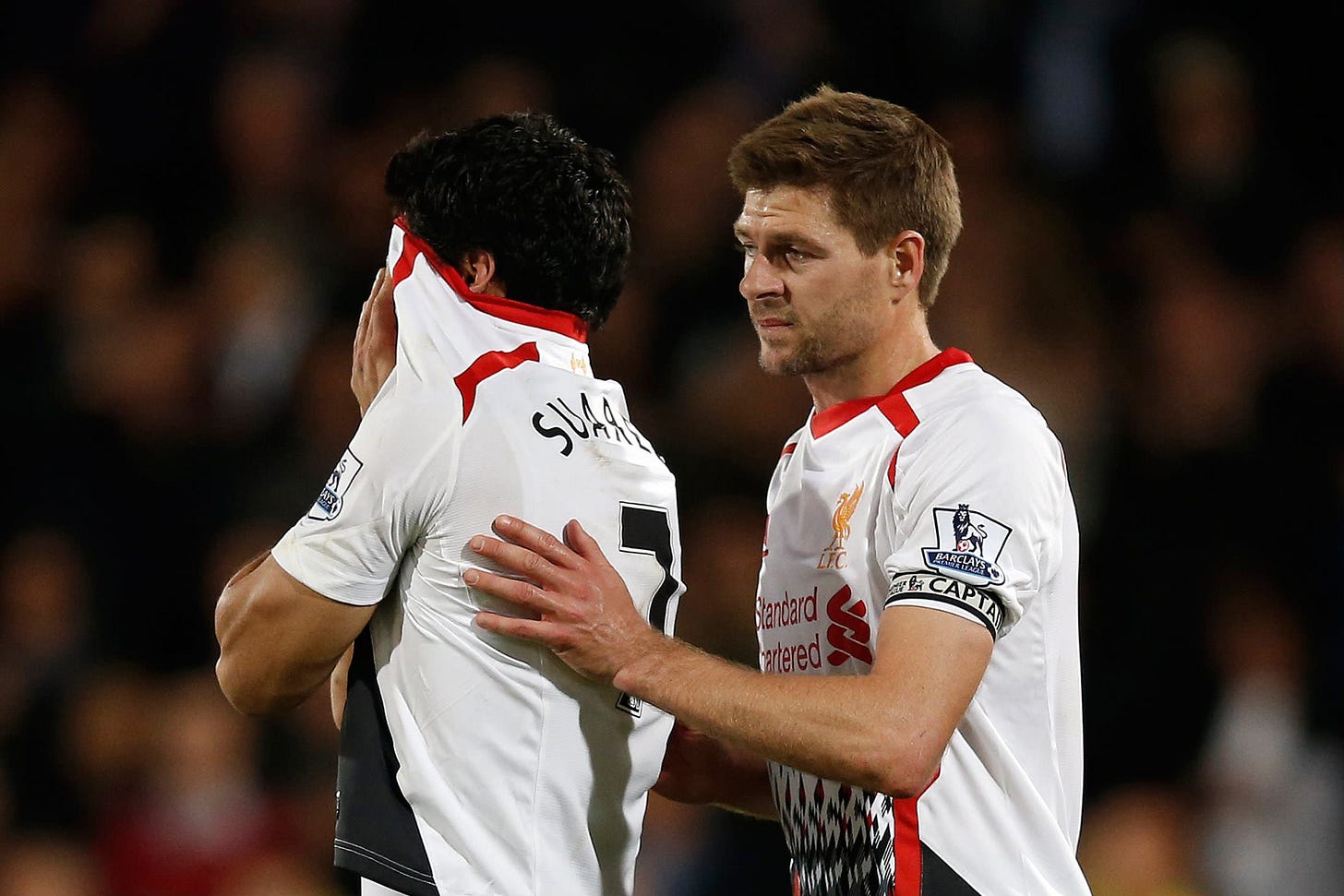
Klopp joined Liverpool mid-season in 2015 after the club fired Brendan Rodgers, meaning there wasn’t a summer transfer window to bring in the players Klopp needed to implement his Heavy Metal system. What he was able to do, however, was begin to rebuild the belief in Liverpool, among both the players and the fans. Nights like the one against West Brom became more frequent as Liverpool went from a side perpetually down on their luck to one with a strong mentality and, most importantly, the identity they’d lacked in recent years. As 2015 rolled into the summer of 2016, Klopp began to bring in the players and install the Heavy Metal tactics that had become his trademark.
Klopp’s rival Guardiola arrived at Manchester City in 2016. Funded by the deep pockets of Emirati owner Sheikh Mansour, Guardiola started bringing in the top talent in Europe to execute his avant-garde tactics at City. Guardiola’s approach took hold quickly and with devastating effect. City’s 2018 side won the Premier League with 100 points, the first “Centurions” in Premier League history. Liverpool finished 25 points behind.
The challenge was clear for Klopp: Rehashing the strategy from Dortmund or Mainz wouldn’t be enough. If Liverpool were to win the league, Klopp would need to build a response to Pep’s dominant style: Heavy Metal 3.0.
That project began during City’s Centurion season. Klopp bought Virgil van Dijk for £75M, a world record for a defender. He followed up the van Dijk purchase with a £67M splash for Alisson Becker, making him the world’s most expensive goalkeeper.
Klopp used to ridicule big clubs for spending huge sums on players, but to execute his vision of beating City, he needed some of the world’s top technicians. Alisson and van Dijk were unique talents because although both play in the back, they have the passing range of elite midfielders, helping them keep possession and kickstart counter-attacks. In that 2018 season, young fullbacks Andy Robertson and Trent Alexander-Arnold also emerged, two defenders capable of initiating the attack with a long ball or joining it with an overlap. Forwards had also been arriving: Mo Salah had returned to the Premier League with 32 goals in 2017-2018. Sadio Mané and Roberto Firmino came into their own to create a deadly front three.
This talented group elevated the “controlled chaos” idea that Klopp had developed at Dortmund to new heights. Liverpool was suffocating their opponents; they dominated possession, used the gegenpress to win the ball back quickly, and employed a combination of well-drilled structure and world-class talent to launch deadly counterattacks.
Where Liverpool really began to set themselves apart from other top teams was how they possessed the ball. City, under Guardiola, dominated the middle of the field with short passes and methodical build-up, using their technically superior players to starve their opponents of possession and control the game. Klopp’s tactical innovation was to flip that notion on its head. Instead of using elite technical players to move carefully through the middle, he would use them to make direct, explosive attacks down the wings. Instead of only playing short out of the back, Klopp’s defenders picked their heads up and began spraying incisive diagonals from defense directly to attack. Van Dijk pinged 50-yard darts to Mané. Alexander-Arnold curled balls down the line into the path of Salah. Alisson hit drop-kicks in stride to Firmino.
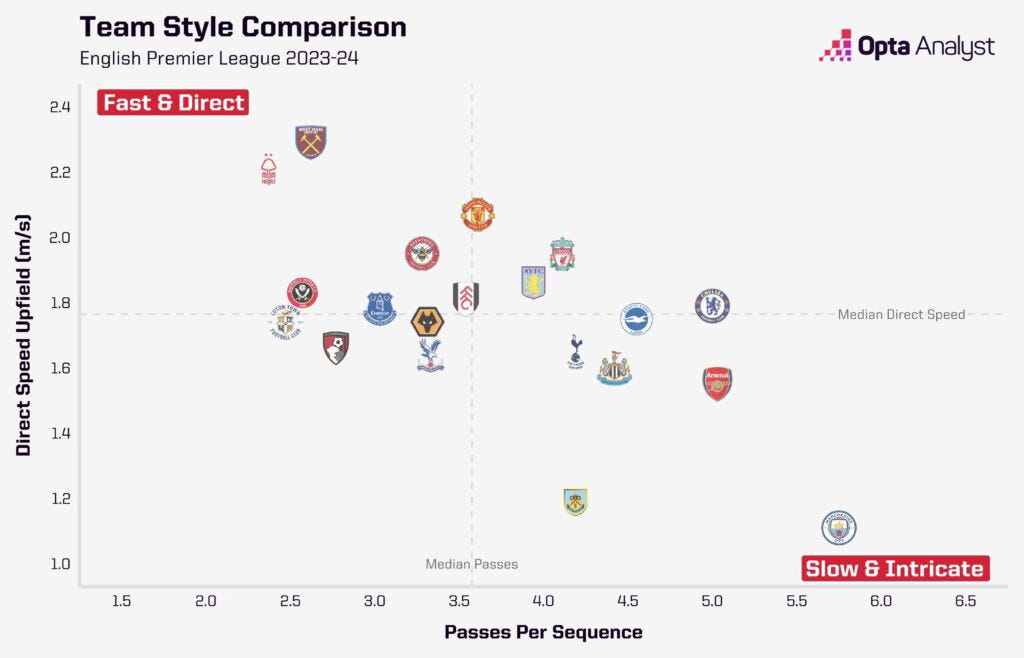
Klopp’s side racked up wins and exposed top teams, whose more methodical styles often left them vulnerable to Liverpool’s explosive counterattacks. A strong 2018 Champions League campaign in which Liverpool made a surprise run to the final announced their return to Europe’s elite. Klopp’s new tactics began to pay dividends against his rival Guardiola as well; following a heavy loss in 2017, Liverpool won three straight against City across the Premier League and Champions League.
Klopp’s Heavy Metal 3.0 was fully in place by May 2019, when Barcelona came to Anfield for the second leg of the Champions League semi-finals.
Liverpool were behind 3-0 after the first leg, and two of their front three, Mohamed Salah and Roberto Firmino, were out injured. Liverpool were also reeling from a blow to their other major trophy hope: the day before, a Vincent Kompany wonder strike had all but sealed the Premier League for Manchester City despite Liverpool reaching 97 points, a total which would have won all but one other Premier League season. Facing Barcelona and Lionel Messi with a three-goal deficit, it looked like Liverpool would be adding another season of near-misses instead of a trophy in 2019.
Klopp gathered the team in their hotel before the match and told them: “The world outside is saying it is not possible. And let’s be honest, it probably is impossible. But because it’s you? Because it’s you, we have a chance. If we fail, then let’s fail in the most beautiful way.”
The fans didn’t need a pre-game speech from Klopp. The players walked out to a roar from Anfield. Four years under Klopp had transformed them from doubters into believers.
And that night, Klopp’s Liverpool repaid their belief.
A Divock Origi first-half goal showed their intent. Then, Georginio Wijnaldum scored early in the second half to whip Anfield into a frenzy. The stadium was still shaking when he added the tying goal two minutes later. Finally, in the 79th minute, Trent Alexander-Arnold motioned over Xherdan Shaqiri to take a corner kick. Alexander-Arnold began to walk away, but when Barcelona turned their backs to organize the defense, he darted back to the ball and fired it into the six-yard box. Origi swept the cross into the far post to make the score 4-3 on aggregate.
Anfield erupted when the full-time whistle blew. After the game, the Liverpool players stood arm in arm with the staff in front of the Kop end, just like they had years earlier after the draw to lowly West Brom. Scarves raised, the fans delivered a spine-chilling rendition of Liverpool’s anthem, “You’ll Never Walk Alone.” Jürgen Klopp stood there grinning, right arm around Mohamed Salah in a shirt that read “Never Give Up” in big block letters.
Klopp’s Liverpool would dispatch Tottenham in the final to win their first Champions League since 2005. The next season, Liverpool won the Premier League, officially lifting the 30-year curse over the club.
Liverpool 2.0 and Klopp’s Surprise Departure
While the amazing heights had become a Klopp trademark over each of his managerial stops, so had the dramatic falls that followed. After Liverpool’s dominant run from 2019-2020, the markers of a Klopp team in decline began to show. Injuries, fatigue, and frustration began to creep into the club. City reclaimed the Premier League title in the 2021 season and hasn’t relinquished control since.
Pundits and supporters began to question Klopp’s Heavy Metal style. They argued that while the game plan was effective and entertaining, it wasn’t sustainable, requiring too much mental and physical exertion to repeat year after year.
Then, before the 2023-2024 season, with his back against the wall and resignation rumors swirling across certain circles in the media, Klopp pulled out his latest managerial trick - one that he hadn’t managed at Mainz or Dortmund. He rebuilt the Liverpool squad again.
The side is Heavy Metal Football version 3.5, using similar tactics from the first successful stretch at Liverpool with a refreshed roster. Klopp replaced midfielders like Henderson, Fabinho, and Milner with dynamic Swiss-army knives like Dominik Szoboszlai, Alexis Mac Allister, and Ryan Gravenberch. The attack is also new, with Darwin Núnez, Luis Díaz, and Cody Gakpo providing reinforcements to a front line featuring Mohamed Salah and Diogo Jota.
Liverpool have ascended back to Europe’s elite, which made it all the more shocking when, on January 26th, with Liverpool sitting atop the Premier League, Klopp announced he would leave the club at the end of the season.
The first question for many is, why now? The answer may go back to Klopp’s days at Mainz. After they were relegated in 2007, Klopp vowed to return Mainz to the top flight. Klopp felt a personal duty to the club and that his job would be incomplete if he left them in Division Two. It is ultimately the one managerial promise Klopp hasn’t kept - leaving for Dortmund after Mainz fell short of promotion in 2008.
At Liverpool, Klopp felt a similar duty to depart the club better than he found it. As a piece in The Athletic about Klopp’s departure put it, “Being able to leave Liverpool in a good place — his legacy — means everything to him.” While Liverpool have returned to the top of the table this season, Klopp’s impact is perhaps better measured in the belief he’s reinstalled in Liverpool’s fans and the lasting identity the players will take forward long after he’s gone. It’s fitting that Klopp, one of the true giants of modern football, will finally get to see a chapter of his Heavy Metal end on a high note.
Edited excellently by Greta Gruber and Dominic Petrello




